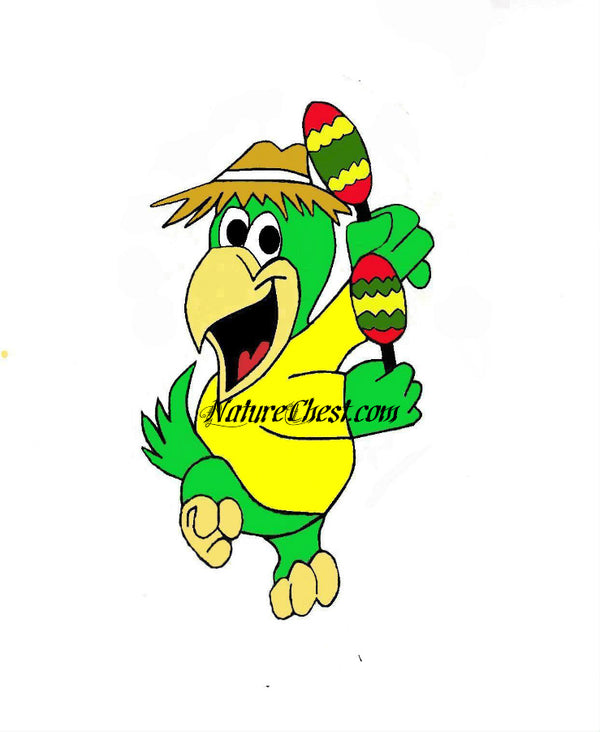Species Focus Quaker Parrots




Quaker Parrots
Quaker babies have a unique mannerism. They appear to "quake" when they are being handfed and this mannerism stays with many of them the first year of life when they are excited about something. Most Quakers love to cuddle and seem to like being scooped up in your hands rather than stepping up at times. Quakers can be very territorial about their cages with a definite view of where everything in their cage should be. If you move a toy you may be put in your place with a string of "birdie verbal abuse". Mattie Sue Athan in her book "Guide to the Quaker Parrot" states Quakers seem to have the theory "if you run, I'll chase you!" which I also agree with. Quakers will chase away anything they find disturbing and owners will often run with the fear of being bitten. Removing them from their cages during cleaning and rearranging often prevents a few nips and your bird's sanity as well.
Socialization is the key to keeping your Quaker nice to everyone. Quakers can be sweet, loving birds, but they can also be little terrors if not trained properly. They can become exceptional talkers rivaling Amazons and African Greys in the size of their vocabularies. They dearly love their toys and should have lots of toys rotated on a regular basis to keep them happy. They are not as destructive as many other parrots preferring to really play with everything they own. Young Quakers will often roll around in play with small balls and hand held toys. Most Quakers love bathing in their water dishes with some learning to like spray baths. I provide large stainless steel dishes for bathing and water bottles for drinking. Of course the bathing bowl will need to be removed after the bath or changed often to keep it clean. Quakers should be offered a varied diet from an early age. They can very easily become seed junkies if allowed to and can become overweight later in life. Feather picking or in severe cases "Quaker Mutilation Syndrome" can be a problem with some Quakers. I personally have only seen severe cases in birds who were abused, neglected or have gone through great stresses in their lives. Overall, a healthy, loved bird should have no more problem than any other species of bird.
I would highly recommend Quakers as a great family pet bird who will delight anyone who meets them.
Copywrite 2003 The Nature Chest - All Rights Reserved - No part of this article may be reproduced without the permission of the author.
[Editor's Note: The above focus is based on personal experiences and opinions raising and keeping Quakers, as well as information shared by our customers who have adopted our babies.]
Join our Feathered Flock
Be the first to know about new collections and exclusive offers.

